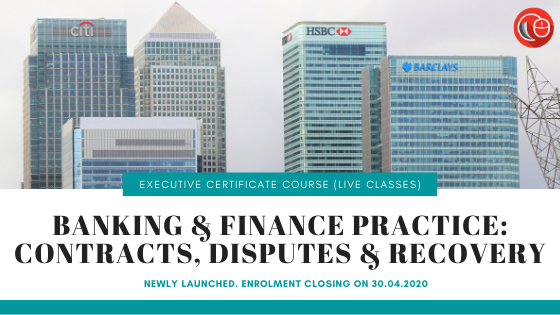“This article is written by Yashovardhan Agarwal, currently pursuing B.A.L.L.B.(Hons.) from Hidayatullah National Law University. This article deals with the case of Robert Vadra Money Laundering. This article is edited by Ilashri Gaur, a law student pursuing B.A. LLB(Hons.) from Teerthanker Mahaveer University (CLLS).
Table of Contents
Background of the case
The Enforcement Directorate (ED) arrested C.C. Thampi, a UAE-based NRI businessman who is alleged to have been an associate of Robert Vadra as well as of an absconding arms dealer, Sanjay Bhandari. Thampi was arrested by the Agency in connection with its continuing investigation into suspected money laundering and the acquisition of Vadra-linked foreign properties. Vadra owns, directly or indirectly, a total of 9 houses, of which 3 are villas, and the rest are luxury apartments. Such villas and apartments were purchased between 2005 and 2010 when the UPA Party was in government. Vadra also owns some of the Rajasthan and Haryana properties. As a result, Vadra was called to the Compliance Directorate multiple times for questioning. Robert Vadra, however, refuted the accusations brought against him and said it was a ‘partisan witch hunt against him.’
The son-in-law of Congressman Sonia Gandhi, Vadra, has refuted any misconduct in the case.
Agency sources said that while questioning the ED in February last year, Vadra claimed that he had met Thampi on board the Emirates flight. However, during his questioning in connection with another case in April 2017, Thampi allegedly told ED that he had met Vadra through Sonia Gandhi’s personal assistant, P. Madhavan.
This inconsistency was used by the Thampi Corner Firm, which manages UAE-based Skylight Investments and the Holiday Party. As per ED, Geever served as a driver in the UAE and the sale of properties was carried out to keep the beneficial owner alive. After an IT raid on Sanjay Bhandari in April 2016, Mayfair was moved to the UAE national in June 2016.
ED was the first to write, on 30 September, that ED had asked Vadra to provide contact information of his suspected associates — Jagdish Sharma and CC Thampi — travel agents, evidence of payment for flights and accommodation, and other expenses incurred during his visits abroad. It also requested Vadra’s bank accounts to corroborate the money he spent on his international trips.
What is Money laundering?
Money laundering is the conversion or transfer of property; the concealment or disguising of the nature of the proceeds; the acquisition, possession, or use of property, knowing that the proceeds are derived from criminal activity; or the participation or assistance in the movement of funds to make the proceeds appear legitimate.
Money gained from other offenses, such as bribery, stock dealing, drug trafficking, and illicit gambling, is “dirty” and has to be “cleaned” to appear to have been derived from legitimate transactions so that banks and other financial institutions can work with money without a doubt. Money can be laundered by a variety of strategies that differ in complexity and sophistication.
According to the US Treasury Department,
Money laundering is the method of making criminal profits (i.e. ‘dirty money’) seem to be legitimate (i.e. ‘clean’). Usually, this requires three steps: positioning, layering, and integration. In the first place, illegal assets are furtively injected into the official financial system. Then money is moved around to create confusion, sometimes by wiring or transferring through multiple accounts. Finally, it is integrated into the financial system by utilizing additional transactions until “dirty money” appears “clean.”
Forms of money laundering
Money laundering can take several forms, although most of the methodology can be categorized into one of a few types. Those include “banking processes, smurfing [also known as structuring], currency swaps, and double-billing.”
- Structure: also referred to as smurfing is a form of positioning by which cash is split into smaller amounts of money used to circumvent fears of money laundering and to escape reporting provisions for anti-money laundering. A sub-component of this is the use of smaller amounts of cash to purchase bearer instruments, such as money orders, and ultimately to repay them in small amounts.
- Bulk currency smuggling: This entails the direct smuggling of currency into another country and depositing it in a financial institution, such as an offshore bank, with increased banking secrecy or less stringent money laundering.
- Cash-intensive enterprises: In this manner, a company typically tends to earn a significant proportion of its income as cash using its funds to deposit criminally-derived currency. Such businesses also work publicly and, in doing so, obtain cash revenue from incidental legal business in addition to illegal cash. In these situations, the client will typically accept all the cash earned as legal earnings. Service companies are ideally suited to this approach, because they have few to no variable costs and/or a high ratio of sales to variable costs, making it impossible to discern variations in revenues and costs.
- Trade-based laundering: this is one of the newest and most complicated ways of money laundering. This involves undervaluing or overvaluing invoices to cover up the movement of money. For example, the art industry has been accused of being the perfect medium of money laundering due to a variety of specific facets of art, such as the intrinsic valuation of works of art, as well as the secrecy of auction houses over the identity of the buyer and seller.
- Shell corporations and trusts: trusts and shell companies are disguising the true owners of assets. Trusts and private entities, depending on the state, do not need to reveal they are the true owners. Often referred to as the slang word rathole, but that term typically applies to a person behaving as a fictional owner rather than a business entity.
- Round-tripping: here, money is invested in an offshore managed foreign company, preferably in a tax haven where limited documents are stored, and then returned as a foreign direct investment, excluded from taxes. The alternative here is to move money to a law firm or an entity equivalent to that of a commission, then to terminate the retainer and, until the money is remitted, to reflect the sums earned by lawyers as an inheritance in a will or proceeds of lawsuits.
- Bank capture: In this case, money launderers or criminals buy a controlling interest in a bank, preferably in a jurisdiction where money laundering controls are weak, and then move money through the bank without scrutiny.
- Casinos: In this manner, a person goes to a casino and buys illegal cash chips. The player must play for a fairly short period. When an individual cashes in the chips, they can have to pay in a check, or at least receive a receipt so that they can report the money as gambling winnings.
- Many gaming: money is spent on gaming, especially high stakes playing. One way to reduce risk in this strategy is to gamble on any potential outcome of a given case that has several possible outcomes, and no outcomes have small odds, so the bettor can only lose vigor and have one or two winning bets that can be seen as a source of capital. Losing bets should stay secret.
- Black wages: a corporation can have unregistered workers without signed contracts and pay them cash salaries. Dirty money could be used to pay for it.
- Tax amnesty: for example, those that legalize unreported assets and cash in tax havens.
- Transaction Laundering: When a merchant unknowingly processes illegal credit card transactions for another business. It is a growing concern and understood as distinct from conventional money laundering in the usage of the payment network to mask the fact that the transaction has ever existed (e.g. the use of bogus front-page websites). Often known as “unrevealed sorting” or “factoring.”
Legal provisions involved in the case
This case includes a variety of procedural provisions in which CC Thampi, Robert Vadra’s aide, has been charged and for which Robert Vadra himself has been held accountable by the Compliance Directorate for which he has been asked to address the Investigating Officer on a number of occasions.
CC Thampi, who is perceived to be Robert Vadra’s chief advisor, was arrested under the Anti-Money Laundering Act, 2002. Vadra was summoned for questioning by the Investigative Officer under the Prevention of Money Laundering Act, 2002, and the Foreign Exchange Management Act, 2000.
Important Provisions of “Prevention of Money Laundering Act, 2002”
The Prohibition of Money Laundering Act, 2002 was introduced to counter the criminal crime of legalizing income/profits from an illicit source. The Prevention of Money Laundering Act, 2002 enables the Government or the public authority to confiscate illegally earned proceeds from the proceeds.
Section 3
Section 3 says, Anyone who attempts, either directly or indirectly, to indulge in, or knowingly assists, or is a party to, or is actually involved in, any process or activity related to the proceeds of the crime and which is projected as untainted property shall be guilty of money-laundering.
Section 4
Section 4 says, Whoever commits a money-laundering crime, shall be punished with strict imprisonment for a period of not less than three years, but which may stretch to seven years, and shall also be liable for a fine which may amount to five lakh rupees:
Given that if the proceeds of the offense concerning money laundering apply to the offense referred to in sub-section 2 of Part A of the Act, the terms of this section shall have effect as if the words “which may extend to seven years” had been replaced by the words “which may extend to ten years.”
Important Provisions of “Foreign Management Act, 2000”
The Foreign Exchange Management Act, 1999 (FEMA) is an Act of the Parliament of India ‘to reform and amend foreign exchange legislation with the purpose of facilitating international trade and payments and of fostering the orderly growth and preservation of the foreign exchange market in India’. This act allows crimes relevant to foreign exchange criminal offenses.
Section 3
Section 3 of the said act clarifies that no one rather the RBI can deal with foreign exchange in India.
Section 4
Section 4 mentions that, Except as otherwise given in this Act, no individual residing in India shall procure, hold, possess, own, or move any foreign exchange, foreign protection, or immovable property situated outside India.
Section 13
Section 13 of the given act deals with the penalties.
Development in the case so far
Initially, Nishikant Dubey, a BJP MP, raised the issue in Parliament at zero hours and asked the government to look into the matter of Benami property or illegitimate assets owned by Robert Vadra worth 12 million pounds in London. He also claimed that there was a certain link between Robert Vadra and the arms dealer Sanjay Bhandari, who were jointly involved in the illegal possession of foreign assets. After the investigation began, it was alleged that the Enforcement Directorate possessed illegal and undisclosed foreign assets worth 12 million pounds in London, Vadra was asked to be questioned.
He was first asked to appear before the Investigative Officer in the early weeks of February 2019, where his statements were recorded under Section 50 of the Anti-Money Laundering Act, 2002. The two sessions of questioning on 6 and 7 February lasted approximately 14 hours. This was then called several times for interrogation. He was also asked to challenge the unlawful ownership of land in Bikaner and Haryana. In May 2019, Mr. Vadra requested early parole to fly overseas for business work. The Regulatory Directorate, however, raised an exception to the anticipatory bail given to him. The Justice Directorate had demanded his detention because he would always refuse to meet with the investigating team. Robert Vadra’s questioning also continued at the beginning of the year, and so, when he and his close aide CC Thampi had made contradictory statements about how they had met each other, the ED arrested Thampi. The High Court is yet to determine if Mr. Vadra should be given Anticipatory bail.
Future possibilities
The case of whether or not Mr. Vadra must be granted early bail is yet to be determined by the High Court of Delhi, as the Compliance Directorate claimed that the court did not understand the seriousness of the charges against him and that supplying him with a bail would allow him the chance to tamper with the evidence and intimidate the witnesses. Since all these crimes were committed under the UPA administration, and the accused Robert Vadra is a close relative of the President of the Congress, the crimes he committed must have been known to the government of that time. However, it refused to take concrete action and set up an inquiry. As a result, actions that have not been taken previously will be taken diligently by the current government.
Fraud perpetrated against the people of the country in every way must be disciplined. It is possible that in the future, after the investigation of Mr. Vadra, Sanjay Bhandari, CC Thampi, and other witnesses and the review of the records, the authorities will take proper action against those responsible. The current government is free from any kind of bias and will, therefore, ensure that the criminals are punished.
Conclusion
The fact that the offenses were perpetrated during the time that the UPA party was in government indicates that they were powerless to deal with these bribery problems and that they supported the perpetrator simply on the grounds that he was their relative. This, in turn, sets a precedent that people closely linked to the government can commit any form of crime freely in the country or abroad without fear of being caught. This tampers with the picture of our country abroad.
Fraud or any kind of crime committed, in particular against the country or citizens, must be investigated and punished. If the government refuses to take effective measures against these criminals, the population of the country may not cooperate with the laws and the judiciary of the country.
LawSikho has created a telegram group for exchanging legal knowledge, referrals and various opportunities. You can click on this link and join:
 Serato DJ Crack 2025Serato DJ PRO Crack
Serato DJ Crack 2025Serato DJ PRO Crack











 Allow notifications
Allow notifications


